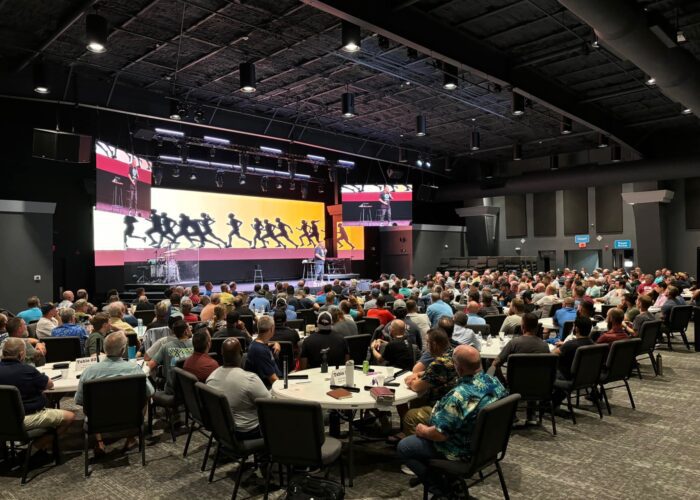Friends, I’d like to discuss what it means to be an intentional disciple maker. 95% of discipleship programs fail because they don’t know what qualities they want to develop in their members. If one aims at nothing they will hit it every time, and that happens too often in today’s small groups. Many meet with little purpose in mind, going through generic studies with no end goal. It’s essential to know where you want the group to go from day one and have a clear plan to get there. Below are a few tips to help you become an intentional ‘discipler’ in your church or small group:
A.) Build Intentional Relationships with your Men
Ministry is based on authentic relationships, which are dependent on what happens outside of your small group as much as the meetings themselves. There’s a direct correlation between the amount of time you spend together beyond the scheduled group and the depth of sharing within the group. When men meet in a less structured setting, walls can start to come down, common interests can be explored, and memories can be made. Look for opportunities to have a meal together, go to a sporting event, or spend time on shared interests.
B.) Have an Intentional Plan for Growth
It’s important to evaluate where our group members are in their spiritual journeys so we can determine what they need from us. This helps them move from one stage of development to the next until they can disciple others. There are generally 5 stages of spiritual development; below are short descriptions of each. For more information, read Real Life Discipleship by Jim Putman.
Stage One: Spiritually Dead
At this point, life is characterized by unbelief and a lack of spiritual knowledge. The person needs to see the gospel, experience the gospel and hear the gospel before they can meaningfully respond to it.
Stage Two: Spiritual Infant – “Feed Me”
The person has been introduced to the Christian life, but hasn’t yet been grounded in Jesus. They need a safe and welcoming environment to grow in their faith and someone who can care for and feed them on a personal level.
Stage Three: Spiritual Child – “Establish”
The goal here is to teach the person what it means to mature in Christ, walk obediently with Him, and experience victory over sin. We want them to move into being a ‘self-feeder’, less dependent on the group for spiritual growth.
Stage Four: The Serving Disciple – “Equip”
We help the person discover, develop, and deploy their spiritual gifts in their lives and communities.
Stage Five: The Multiplying Disciple – “Empower”
Our goal at this stage is to empower the person to do for others what you did for them. Once they’re confident in what they’ve learned in the past four stages, they can become a spiritual parent to others and lead a group of their own.
With these descriptions in mind, make a list of each of your group members and mark where they are in their spiritual journey and what they need to grow.
C.) Intentionally Delegate Kingdom Responsibility
To help his disciples grow, Jesus sent them out into the world to minister to others. In order to help your disciples grow, help them find a similar place of service. Expose them to different ministries and a variety of spiritually gifted people. Every man has a role to play in God’s plan for the world; our purpose is to help them discover that role and encourage them to pursue it. Make sure to never ask a man to do anything unless you are willing to provide the training they need to do it.
D.) Choose an Intentional Apprentice for the Group
Any movement of discipleship will only grow as new leaders are developed. To accomplish this you will want to choose one or two of the group members to be an apprentice. An apprentice is not a co-leader or assistant leader, but someone who is being trained and equipped to become a leader. Your apprentice is your next leader. After the initial months of meeting, look for someone to begin the process of developing to begin their own group. The ideal learning environment for an apprentice is where information is received and then applied in the context of relationship to create reproducible learning. Prepare them to launch their own group by slowly giving them more and more responsibility over time.
The same way men don’t naturally drift toward Godliness, groups don’t naturally drift toward being healthy, mature, and multiplying. It takes a leader who’s intentional about developing relationships with his men, committed to his plan for growth, with talents for delegating responsibilities and cultivating apprentice leaders.










